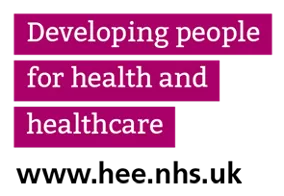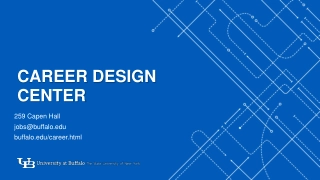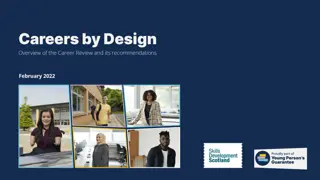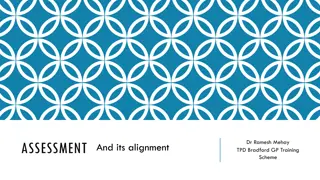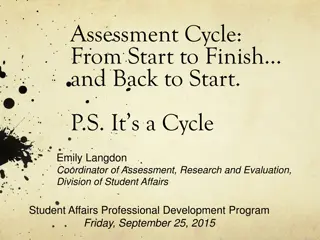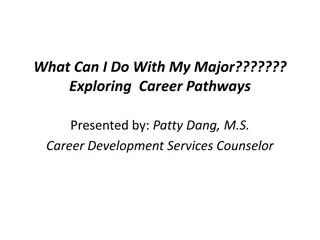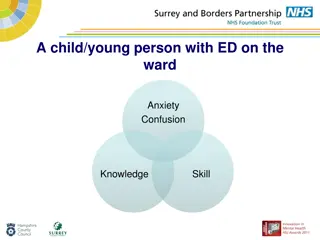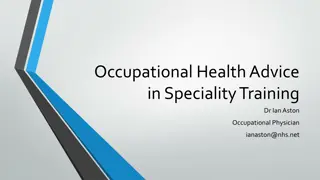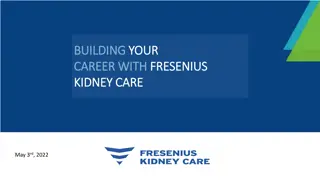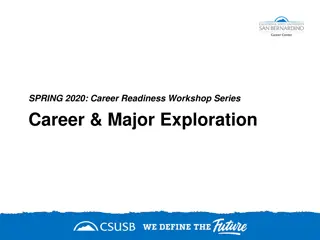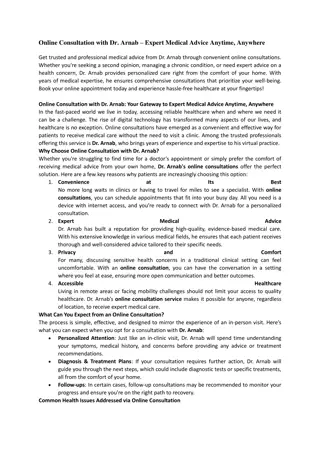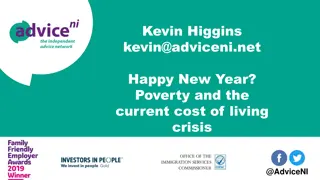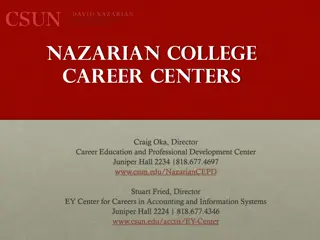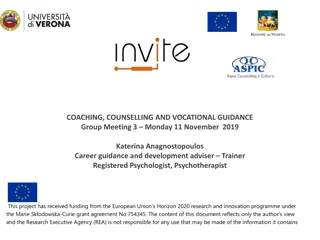Comprehensive Guide to Medical Career Advice and Assessment
Explore a detailed overview of the roles and responsibilities within medical education, including advice, appraisal, and assessment processes. Learn about key figures like Associate Deans, Specialty Training Committees, and Clinical Supervisors, who play vital roles in overseeing training programs, providing career guidance, and ensuring quality assurance in medical practice.
Download Presentation

Please find below an Image/Link to download the presentation.
The content on the website is provided AS IS for your information and personal use only. It may not be sold, licensed, or shared on other websites without obtaining consent from the author.If you encounter any issues during the download, it is possible that the publisher has removed the file from their server.
You are allowed to download the files provided on this website for personal or commercial use, subject to the condition that they are used lawfully. All files are the property of their respective owners.
The content on the website is provided AS IS for your information and personal use only. It may not be sold, licensed, or shared on other websites without obtaining consent from the author.
E N D
Presentation Transcript
Advice, appraisal and assessment
Advice Appraisal
Getting Advice & Guidance Royal Colleges HEE YH Associate Deans Specialty Training Committee Director of Medical Education College Tutors Clinical Supervisors Educational Supervisors Postgraduate Education Manager Medical Personnel Department Mentors
The Royal Colleges CCT / regulations Curriculum Assessments Exams
HEE YH Training Posts Trainers Structure http://www.yorksandhumberdeanery.nhs.uk/
Associate Deans Associate Deans work part time for HEE YH. They have special areas of responsibility, as described on the HEE YH website. There is an Associate Dean with responsibility for each specialty e.g. GP. You will not have much personal contact with them. (Unless you need advice on something specific e.g. "Less Than Full Time Training )
Speciality Training Committee Oversee training in speciality ST1 to CCT Oversee Assessment in speciality Includes Training Programme Directors (TPDs)
Director of Medical Education Postgraduate Education Centres in each Trust Overview of training in Trust Organise Programmes Career advice & counselling
College Tutors Specialist representatives of Royal Colleges In the workplace / Trust Oversight of programmes Career advice & counselling Quality assurance May also be DME Link between Trusts and Colleges
Clinical Supervisors Local representative of HEE YH In the workplace / Trust Responsible for programmes and training Career advice & counselling
Educational Supervisors Appraisal Assessment -confidential - developmental - what do you need? -open - external - how good are you? - are you ready to progress?
Appraisal Identify needs Set goals Review progress Feedback Plan for future
Postgraduate Education Manager Runs postgraduate centre Administers study leave Good starting point for advice
Medical Personnel Department Trust employment process Looking after employees
Mentors In HEE YH there is at least one mentor in each Trust Senior doctors available to help overseas doctors
Other useful contacts: British Medical Association (trade union) Defence Societies General Practitioner (personal health) Occupational Health Confidential Counselling ( Take Time )
Get your advice from the right person Clearly it is important to go to the right resource to get advice and guidance. Most important and relevant information is available online and you should take time to locate the most important websites e.g. your College, HEE YH and Trust websites. Get to know the staff in your education centre. Above all treat them with respect they can do a lot to make your life easier if you relate to them properly.
Get your advice from the right person If you want to know about GMC registration, then ask the GMC If you want to know about prospects in a particular specialty, then speak to the relevant College Tutor or Regional Advisor If you want to know about your contract, then speak to Medical Staffing Dept. of your employer Be wary of advice from your friends and relatives Make sure your decisions are based on accurate information Use your appraisals for discussion about what you should do
The end? Any questions?






